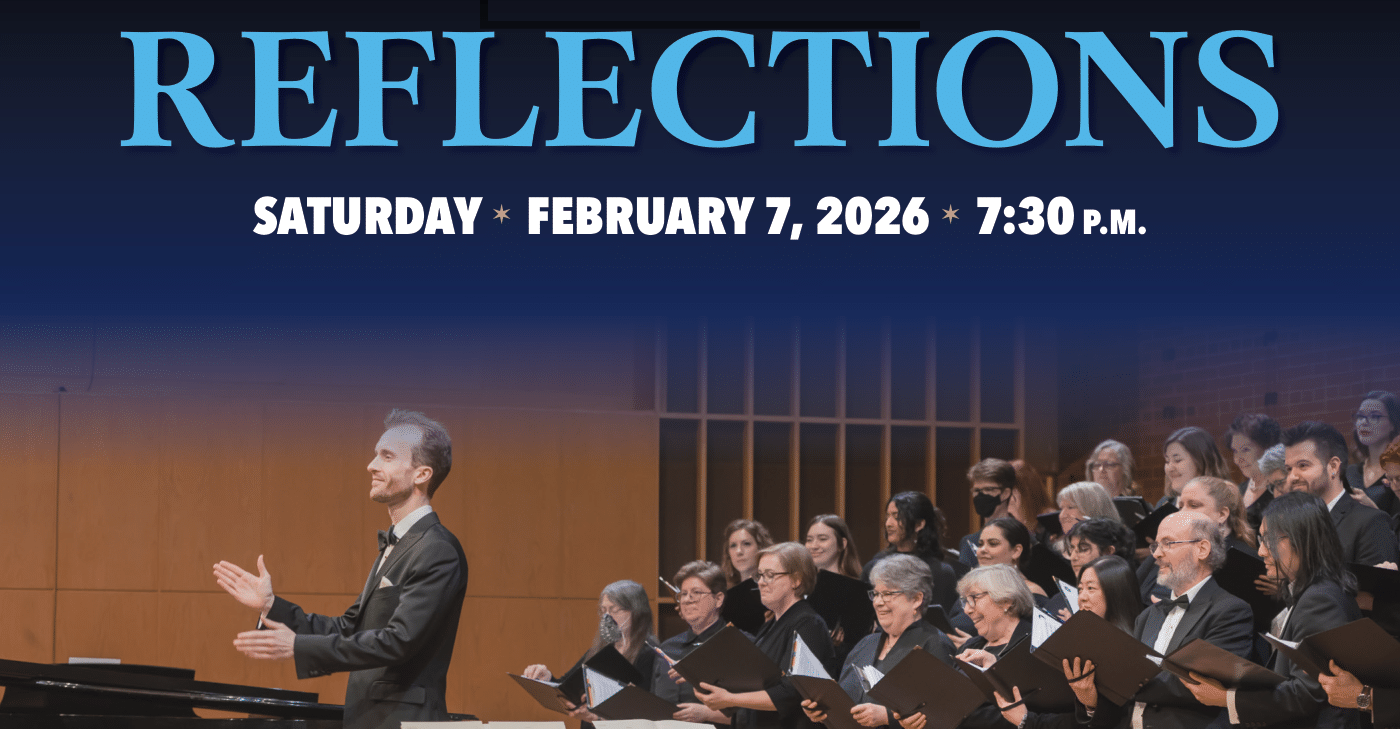mainstage series

Saturday, February 7, 2026 • 7:30 p.m.
First Free Methodist Church (3200 3rd Ave W)
Harmonia Chorus
William White, conductor
Program
Reena Esmail (*1983)
“The Unexpected Early Hour” from A Winter Breviary
Sergei Rachmaninov (1873–1943)
“Blessed art Thou, O Lord” from All-Night Vigil
traditional / arr. Darius Lim (*1986)
Dayung Sampan
Marques L.A. Garrett (*1984)
Invitation to Love
Harry T. Burleigh (1866–1949)
He Met Her in the Meadow
Carol Sams (*1945)
My Life Flows On
Huntley Beyer (*1947)
Reflections [world premiere]
Samuel Barber (1910–1981)
Reincarnations, Op. 16
Sheila Bristow (*1969)
Winter Solstice
Katerina Gimon (*1993)
Boundless
Henry Purcell (1659–1695)
Hear My Prayer O Lord, Z. 15
George Frideric Handel (1685 –1759)
“Moses, and the children of Israel” and “I will sing unto the Lord” from Israel in Egypt
About the Concert
A world premiere by longtime Harmonia collaborator Huntley Beyer anchors this program of choral gems. Beyer’s new composition reflects on life, maturity and aging — three of the themes explored by the other works on this varied concert.
This performance will last approximately 75 minutes, with refreshments to follow.
Maestro’s Prelude
— William White
Program Notes
Sheila Bristow is a church musician, composer and collaborative keyboardist who serves as music director and organist for St. Barnabas Episcopal Church and as keyboardist for Harmonia. The poem on which she based her 2024 choral work Winter Solstice “conjures visions of our primeval ancestors sitting around the fire in the dead of winter,” she writes. “As they sit in this community, they mark the turning of the season, from the longest night of the year to the rebirth of the light. To represent this scene, I have used modern equivalents of basic musical instruments — percussion (vibraphone), plucked strings (harp), winds (clarinet) — combined with communal singing. Between each choral phrase, the clarinet repeats a folk-like melody over a harmonic pattern derived from one of the Lassus motets heard on tonight’s program.” Says William White (who conducted the world premiere with Harmonia on March 9, 2024): “The choral writing is both smooth and dramatic. It’s a knock-out of a little choral piece!”
The eight-part choral anthem Hear my prayer, O Lord, composed around 1682 by Henry Purcell, sets the first verse of Psalm 102.
